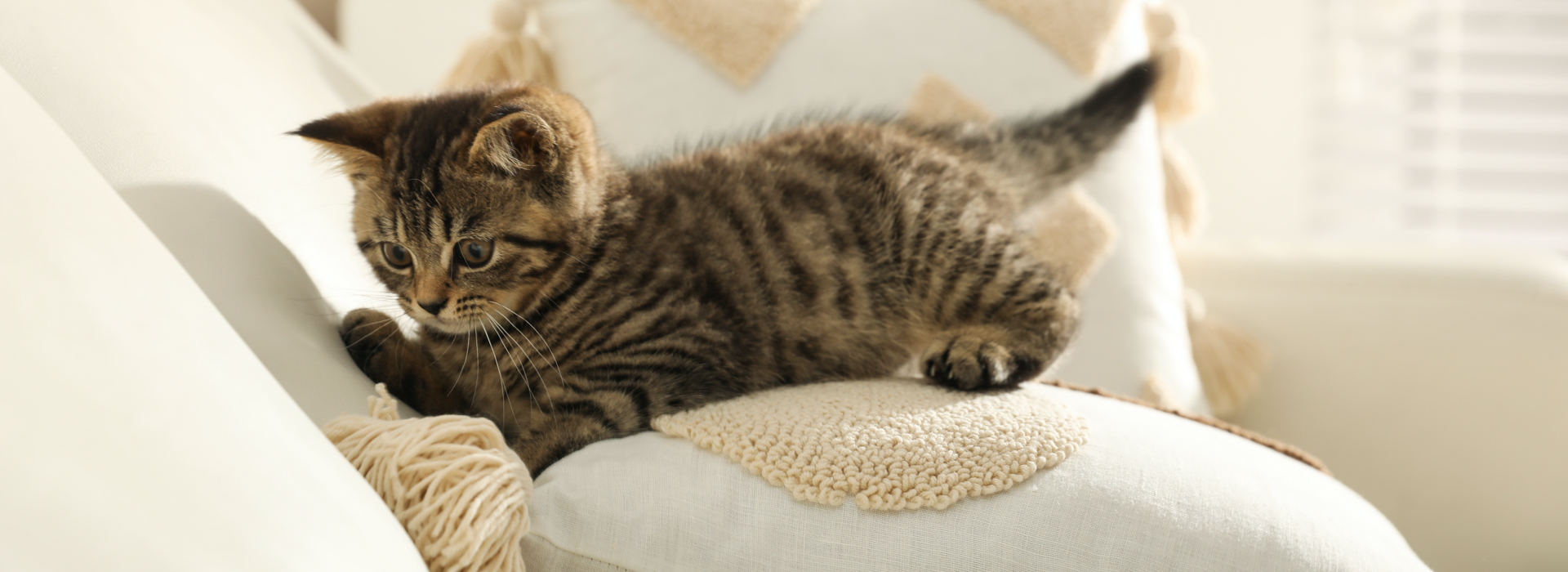It’s wonderful to have a cat to cuddle and play with but taking care of another living being is a big responsibility. To stay healthy, your cat needs regular shots to protect them from potentially fatal infectious diseases. Here’s the vaccination schedule to follow.
Starting at two months old:
At two months, a kitten’s immune system is still developing. Over the following weeks, kittens will gradually lose the protection they got from nursing, putting them at risk for viral infections. If your kitten or cat hasn’t been vaccinated when you bring them home, make an appointment with your vet as soon as possible so they can get their first shot. Then should then receive two booster shots at one-month intervals to make sure they’re fully vaccinated.
Core vaccines:
The core vaccine is a must. Known as FVRCP, it can be given to cats as young as six weeks old. It protects them from feline viral rhinotracheitis (FVR), calicivirus (C) and panleukopenia (P).
Panleukopenia, a highly contagious viral disease caused by a parvovirus, is particularly prevalent in kittens, who are more at risk. The disease can have serious consequences and cause symptoms such as loss of appetite, foul-smelling diarrhea, vomiting, dehydration and fever. If left untreated, panleukopenia is often fatal.
- Rhinotracheitis is a very common infection caused by a virus that attacks the feline respiratory system. It’s sometimes compared to the human flu because it affects cats’ upper respiratory tracts. Infected cats may exhibit symptoms such as sneezing, excessive drooling and eye and nasal discharge, coughing, fever, anorexia and conjunctivitis.
- Calicivirus is a disease that also attacks the respiratory tract of kittens and cats. It’s highly contagious and can be spread from animal to animal through direct or indirect contact. Symptoms are the same as rhinotracheitis, but calcivirus can also cause ulcers inf the cat’s mouth, nose or even paw pads.
- Although they can be treated if your cat gets infected, all three diseases are highly contagious and cause your cat intense pain and discomfort. Since they can be prevented with a single vaccine, it’s essential to protect your cat by vaccinating them as soon as possible.
Once your kitten has received their two boosters, they’ll only need to be vaccinated once a year.
Other essential vaccines:
There are also vaccines to protect your cat from other serious viral diseases such as leukemia or rabies, both of which can be fatal. These less common diseases are more prevalent in outdoor cats and can be transmitted by other cats or animals. Rabies is spread by skunks, raccoons, bats and foxes.




